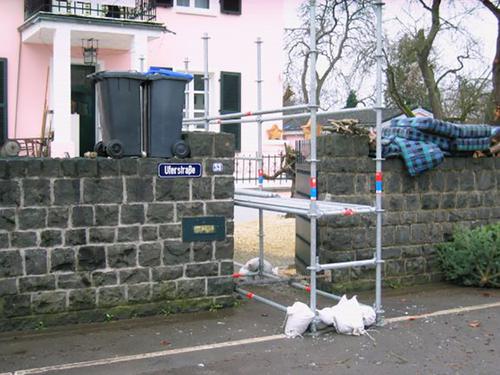当前位置:
X-MOL 学术
›
WIREs Water
›
论文详情
Our official English website, www.x-mol.net, welcomes your feedback! (Note: you will need to create a separate account there.)
The shifting position of homeowners in flood resilience: From recipients to key‐stakeholders
WIREs Water ( IF 8.2 ) Pub Date : 2020-05-27 , DOI: 10.1002/wat2.1451 Karin A. W. Snel 1 , Patrick A. Witte 1 , Thomas Hartmann 2, 3 , Stan C. M. Geertman 1
WIREs Water ( IF 8.2 ) Pub Date : 2020-05-27 , DOI: 10.1002/wat2.1451 Karin A. W. Snel 1 , Patrick A. Witte 1 , Thomas Hartmann 2, 3 , Stan C. M. Geertman 1
Affiliation

|
The academic debate on flood risk governance is paying increased attention to the shifting position of homeowners. Homeowners are increasingly expected to adapt their homes to protect against possible floods. Although an overall agreement seems to exist on the involvement of homeowners in flood risk governance, the academic literature is dispersed in its argumentation on why homeowners should be involved. Therefore, this article provides a coherent overview of the transition from flood protection to flood risk management, and subsequently of the arguments that unfold regarding the shifting position of homeowners within this debate. This overview, based on a systematic review of the academic literature, helps to shed light on the changing role of homeowners in flood risk governance and contributes to categorizing the arguments used in current academic reasoning on homeowner involvement in flood risk governance. We use a conceptual distinction between macro‐level and micro‐level arguments, and between individual and collective efforts to structure our results. This conceptual overview illustrates the potential gap in convincing homeowners of the urgency to take action, because the connection between the macro‐level arguments (i.e., climate change and responsibility) and the micro‐level arguments (i.e., minimizing flood damage on privately owned properties) is generally not made. We, therefore, suggest that a stronger coherence in the argumentation would contribute to increase homeowner awareness of their changing responsibilities, which might bring about a future shift toward a new phase in flood risk governance, in which the responsibilities of homeowners are more explicitly acknowledged and integrated into climate adaptation strategies.
中文翻译:

房主在抗洪能力方面的转变:从受助者到关键利益相关者
关于洪水风险治理的学术辩论越来越关注房主的位置变化。人们越来越希望房主能够调整房屋,以防洪水泛滥。尽管似乎已就房主参与洪水风险治理达成了总体共识,但学术文献却分散了关于为何应使房主参与的争论。因此,本文提供了从防洪到洪灾风险管理过渡的连贯概述,以及随后在这场辩论中有关房主转移位置的争论。此概述基于对学术文献的系统回顾,有助于阐明房主在洪水风险治理中角色的变化,并有助于对当前学术推理中有关房主参与洪水风险治理的论点进行分类。我们在宏观层次和微观层次的论证之间,以及在个人和集体为构建结果所做的努力之间,使用了概念上的区别。此概念性概述说明了说服房主采取行动的紧迫性的潜在差距,因为宏观层面的论点(即气候变化和责任)与微观层面的论点(即最大程度地减少私人财产的洪灾损失)之间的联系)通常不制作。因此,我们建议,在论点上加强连贯性将有助于提高房主对其责任变化的认识,
更新日期:2020-05-27
中文翻译:

房主在抗洪能力方面的转变:从受助者到关键利益相关者
关于洪水风险治理的学术辩论越来越关注房主的位置变化。人们越来越希望房主能够调整房屋,以防洪水泛滥。尽管似乎已就房主参与洪水风险治理达成了总体共识,但学术文献却分散了关于为何应使房主参与的争论。因此,本文提供了从防洪到洪灾风险管理过渡的连贯概述,以及随后在这场辩论中有关房主转移位置的争论。此概述基于对学术文献的系统回顾,有助于阐明房主在洪水风险治理中角色的变化,并有助于对当前学术推理中有关房主参与洪水风险治理的论点进行分类。我们在宏观层次和微观层次的论证之间,以及在个人和集体为构建结果所做的努力之间,使用了概念上的区别。此概念性概述说明了说服房主采取行动的紧迫性的潜在差距,因为宏观层面的论点(即气候变化和责任)与微观层面的论点(即最大程度地减少私人财产的洪灾损失)之间的联系)通常不制作。因此,我们建议,在论点上加强连贯性将有助于提高房主对其责任变化的认识,


























 京公网安备 11010802027423号
京公网安备 11010802027423号